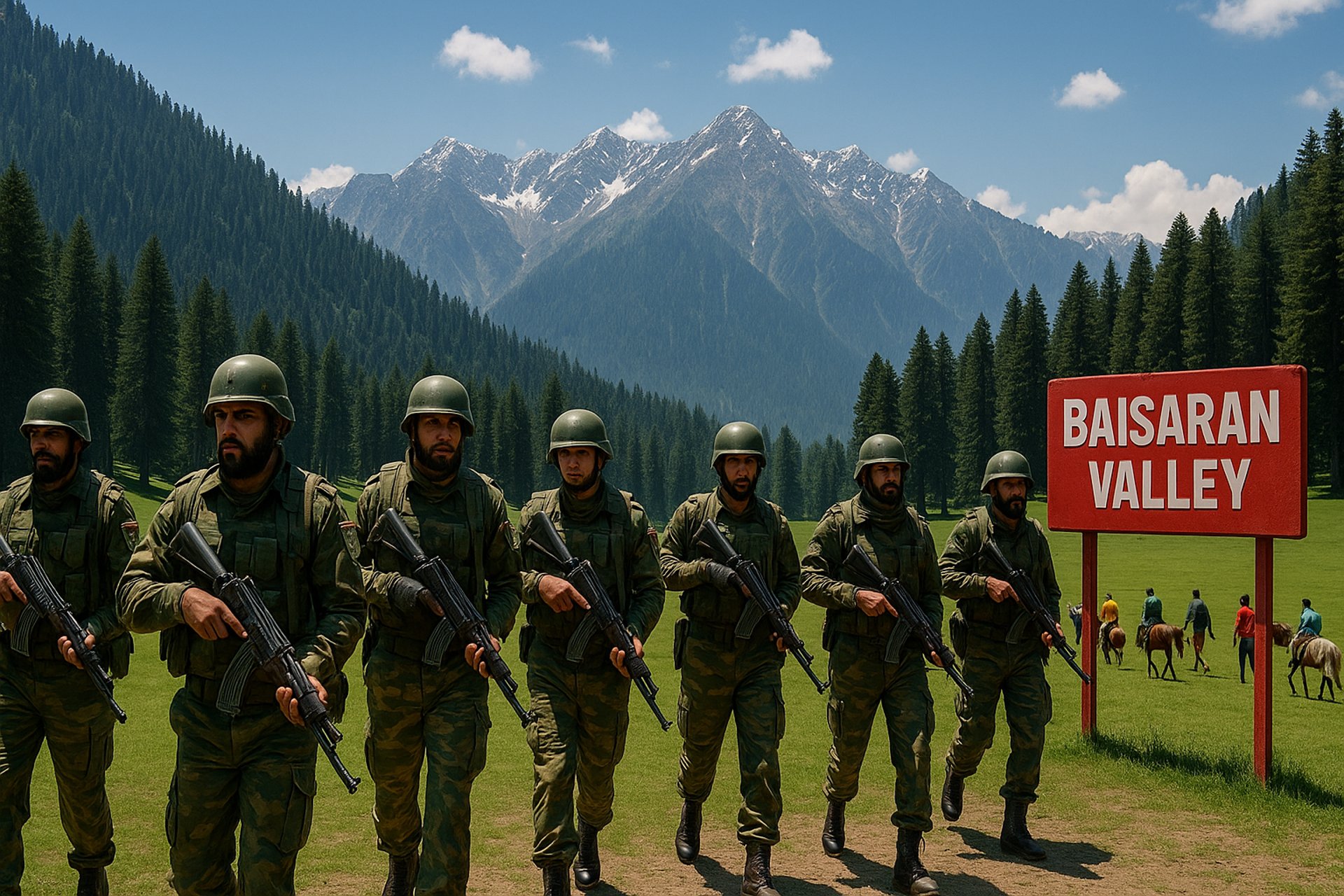
2025 Pahalgam Attack: How Kashmir’s Fragile Peace Was Shattered | #navalblockageforpakistan
On April 22, 2025, the 2025 Pahalgam attack killed 26 and injured 20, targeting non-Muslim tourists. Discover the fallout, government response, and impacts on Kashmir. | #navalblockageforpakistan
EDUCATIONNEWSFEATURED


The 2025 Pahalgam Attack: Kashmir’s Hopes for Peace Shattered
April 22, 2025, will be remembered as one of the darkest days for Jammu and Kashmir. What was supposed to be a regular spring afternoon in Baisaran Valley turned into a nightmare when a brutal terrorist attack took the lives of 26 people and left 20 others wounded. The tragedy, the worst civilian attack in India since the 2008 Mumbai carnage, specifically targeted non-Muslim tourists and shook the entire country.
In this article, we’ll walk you through what happened that day, how the Indian government responded, the world’s reaction, and what it all means for the fragile dream of peace in Kashmir.
What Happened in Baisaran Valley?
Baisaran Valley, known for its rolling green meadows and dense pine forests, lies just about 7 kilometers from the popular town of Pahalgam. Normally, it's a peaceful spot where families ride ponies and tourists soak in the mountain air. But on that afternoon, around 2:45 PM, everything changed.
Five men, dressed in army-style uniforms and armed with M4 carbines and AK-47 rifles, stormed the area. They weren’t looking for random victims — they separated people based on religion, forcing them to prove their faith by reciting Islamic prayers or undergoing humiliating checks. Those who failed were gunned down mercilessly.
Witnesses said the terrorists cursed Prime Minister Narendra Modi during the attack and allowed one woman to survive, telling her to "go and tell everyone what happened here." In the chaos, a brave local pony handler tried to fight back and paid with his life. The killers disappeared into the nearby forests before security forces could catch them.
The Lives Lost: Profiles of the Victims
Among the 26 people killed were:
24 Indian tourists, hailing from states like Karnataka, Kerala, Maharashtra, Odisha, Tamil Nadu, and more.
One local Kashmiri, who was simply trying to do his day's work.
One Nepali national, whose dream vacation turned tragic.
Tragically, three government officials — one from the Indian Air Force, one from the Navy, and an Intelligence Bureau officer — were among the dead. A Christian tourist from Madhya Pradesh also lost his life. Almost all victims were men, underscoring that this attack was anything but random.
Who Claimed Responsibility—and Why They Backtracked
At first, a militant group called The Resistance Front (TRF), linked to Lashkar-e-Taiba, proudly claimed responsibility. They said the attack was retaliation for India’s policies allowing non-Kashmiris to settle in the region. But just a few days later, they backtracked, calling their own statement "hasty" and blaming Indian intelligence for "spreading lies."
This sudden U-turn has left more questions than answers, and as of now, the real masterminds are still under investigation.
India’s Swift Government Response
Prime Minister Narendra Modi wasted no time. He immediately cut short his trip to Saudi Arabia and called an urgent Cabinet Committee on Security (CCS) meeting. Some bold moves were made:
India suspended the historic Indus Waters Treaty with Pakistan.
The main border crossing was sealed, and Pakistani nationals were barred under the SAARC Visa Exemption Scheme.
All Pakistani diplomats and military advisors were expelled from India.
Indian representatives were pulled back from Islamabad.
Home Minister Amit Shah visited Srinagar to oversee the security response. It was also admitted that there had been a serious lapse — the valley had been opened to tourists earlier than usual without informing security forces.
A major counter-terror operation began immediately, with helicopters scouring the forests, and an all-party meeting was convened to ensure a united political front.
Global Reactions and Diplomatic Fallout
The attack drew swift and strong condemnation from across the globe. Countries like the United States, United Kingdom, Saudi Arabia, Israel, Italy, Iran, Bangladesh, Bhutan, China, and many more stood with India. Even international bodies like the UN and European Union voiced their outrage.
Meanwhile, Pakistan, as expected, denied any role. Their Defense Minister, Khawaja Asif, went so far as to call the attack a “false flag” designed by India itself — an accusation that only added fuel to an already raging fire. Pakistan also suspended visas for Indians, shut down its airspace, and border skirmishes erupted along the Line of Control soon after.
The Never-Ending Kashmir Conflict
If you look at the history, Kashmir has been a flashpoint since 1947. Both India and Pakistan claim it fully, but neither controls it entirely. When India revoked Jammu and Kashmir’s special status in 2019, the move was hailed by some and hated by others. While India tried to boost tourism and bring stability, militant groups clearly had other plans.
The 2025 Pahalgam attack is yet another painful reminder that achieving peace in Kashmir is no easy task.
Expert Analysis: What This Means for Kashmir’s Future
Security analysts believe this wasn’t just random violence — it was a calculated move to crush Kashmir’s growing tourism sector, damage India's efforts to bring normalcy, and ignite fresh tensions.
And India’s decision to suspend the Indus Waters Treaty? Experts are calling it a massive diplomatic escalation — something that could ripple across South Asia for years to come.
Current Status: Security Operations and Tourism Impact
As of April 27, 2025, the hunt for the attackers is still on. No arrests yet, but security forces have detained several suspects linked to terror networks, and properties tied to extremists are being bulldozed.
Tourism, understandably, has taken a nosedive. Hotels are seeing mass cancellations, and local businesses that rely on travelers are hurting. Fear is once again gripping ordinary Kashmiris, many of whom just want peace and normal life to return.
Conclusion: Moving Forward from the 2025 Pahalgam Attack
The 2025 Pahalgam attack broke hearts, shattered families, and reminded the world that Kashmir’s road to peace is paved with blood and setbacks.
While the Indian government's tough response shows its resolve, the deeper battle is about winning hearts, ensuring justice, and refusing to let terror define Kashmir’s future.
The people of Kashmir — resilient, hopeful, and tired of war — remain the region’s best hope for a better tomorrow.

